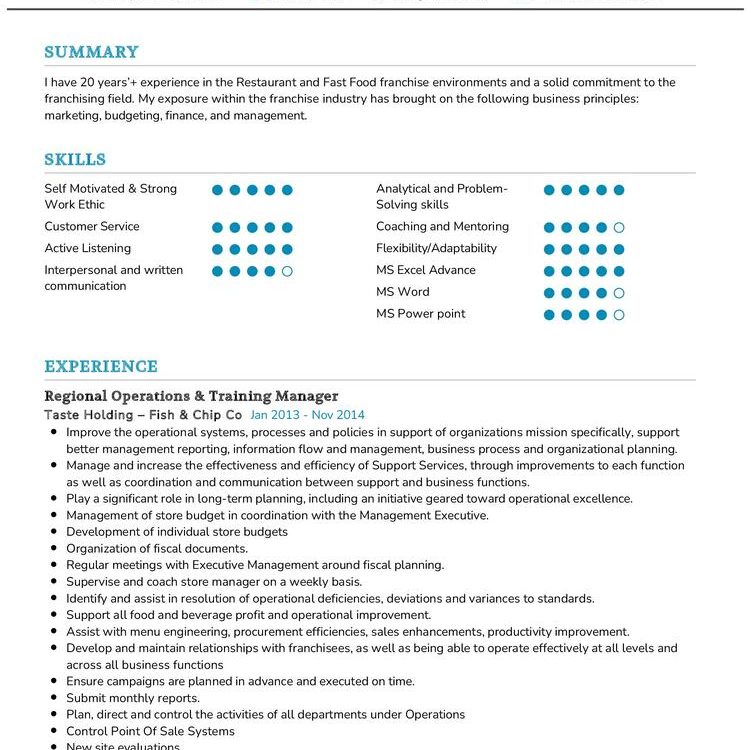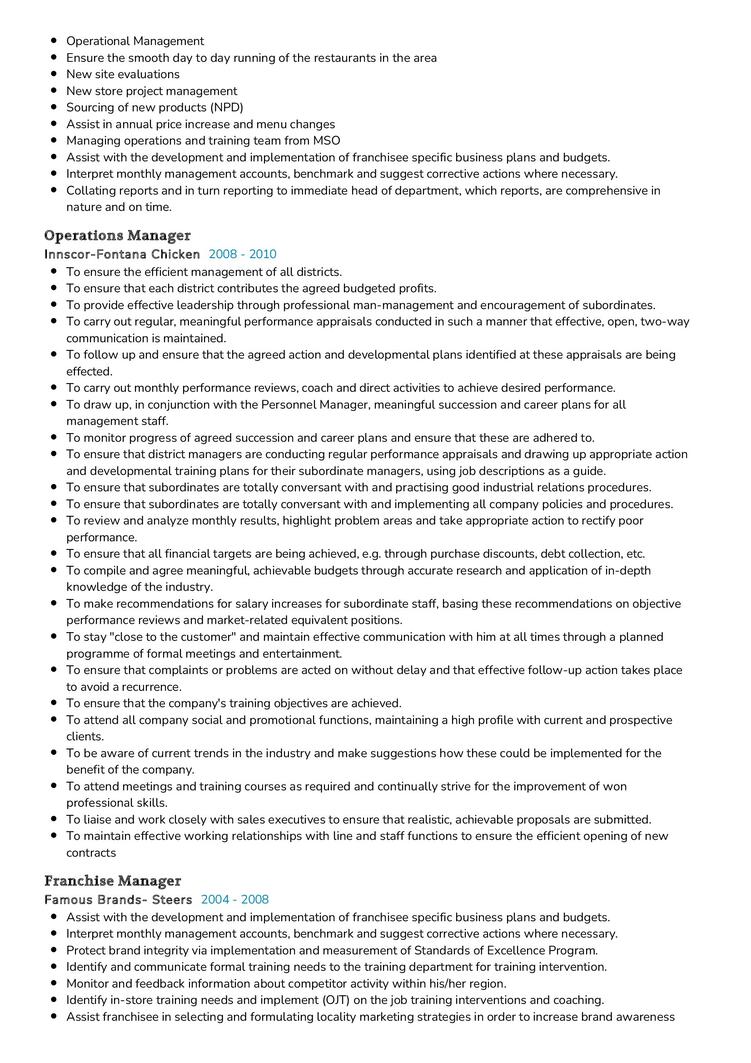Understanding the Role of Regional Operations in Business Success
In the ever-evolving landscape of modern businesses, the role of Regional Operations is of paramount importance. This crucial position serves as the backbone of organizational efficiency and effectiveness, ensuring seamless coordination and management of operations across different regions. Let’s delve deeper into the multifaceted responsibilities and critical functions that define the role of Regional Operations in fostering business growth and success.
Key Responsibilities of a Regional Operations Professional
A Regional Operations professional shoulders diverse responsibilities that are pivotal in ensuring smooth functioning and synchronization of operations across various regions. Some of the key responsibilities include:
- Overseeing regional branches, ensuring they align with the organization’s overall mission and objectives.
- Developing and implementing strategies for regional expansion and growth, catering to the unique needs and dynamics of each area.
- Coordinating with regional managers to streamline operations and optimize efficiency.
- Monitoring and analyzing regional performance metrics to identify areas for improvement and opportunities for growth.
- Ensuring compliance with regulatory requirements and industry standards in all operational aspects across regions.
- Facilitating effective communication and collaboration among regional teams to foster a cohesive and aligned work environment.
Each responsibility plays a crucial role in maintaining the synergy and cohesiveness of operations across diverse geographical locations.
Requirements and Qualifications for Regional Operations Professionals
Becoming a successful Regional Operations professional demands a combination of specific qualifications, skills, and experiences. Some of the prerequisites for excelling in this role include:
- A Bachelor’s or Master’s degree in Business Administration, Management, or a related field, showcasing a strong foundation in business principles and strategies.
- Proven experience in managing operations across multiple regions, demonstrating the ability to navigate diverse challenges and ensure operational consistency.
- Excellent leadership and interpersonal skills, essential for effectively managing and motivating regional teams.
- An analytical mindset, coupled with strong problem-solving abilities, to assess complex operational challenges and devise effective solutions.
- A deep understanding of market dynamics and regional nuances, enabling the development of tailored strategies for each location.
- Proficiency in data analysis and reporting tools to track and measure regional performance effectively.
Continual professional development and staying updated with the latest industry trends are also crucial for excelling in the field of Regional Operations.
Skills and Traits for Successful Regional Operations Management
Effective Regional Operations management relies on a diverse skill set and specific personality traits that enable professionals to navigate the complexities of multi-region operations. Some essential skills and traits include:
Key Skills:
- Strategic planning and decision-making, to chart out effective regional expansion strategies and operational frameworks.
- Strong communication and negotiation skills, vital for fostering positive relationships with regional stakeholders and ensuring seamless collaboration.
- Project management expertise, essential for overseeing various operational initiatives simultaneously across different regions.
- Adaptability and flexibility, crucial for swiftly responding to dynamic market changes and regional shifts.
- Financial acumen, to effectively manage regional budgets and resource allocation in line with organizational objectives.
Personal Traits:
- Resilience and perseverance, enabling professionals to navigate challenges and obstacles with a determined mindset.
- Empathy and cultural sensitivity, crucial for understanding and respecting diverse regional cultures and practices.
- Innovation and creativity, fostering the development of unique solutions tailored to specific regional requirements.
- Collaborative and team-oriented mindset, essential for fostering a positive and cohesive work environment across regions.
- Attention to detail and precision, ensuring accuracy and quality in all regional operational activities.
Each skill and trait contributes to the overall effectiveness and success of a Regional Operations professional.
Building an Impactful Regional Operations CV
Crafting a compelling Regional Operations resume is essential for showcasing your unique skills and experiences effectively. Here are some key tips to create a standout resume:
- Highlight specific instances where your strategic planning and decision-making skills have led to successful regional expansions or operational improvements.
- Showcase your ability to manage and coordinate with diverse regional teams, emphasizing your strong communication and negotiation skills.
- Quantify your achievements by including measurable outcomes of your regional strategies, such as improved revenue or increased market share.
- List relevant certifications and training programs that highlight your commitment to continual professional development and staying updated with industry best practices.
- Customize your resume for the specific role and organization, aligning your skills and experiences with the requirements and culture of the company.
By following these tips, you can create a resume that effectively highlights your strengths and makes you a compelling candidate for the role of Regional Operations.
Emphasizing Career Growth and Development in Regional Operations
The career path in Regional Operations is one filled with opportunities for growth and development. Continuous learning and skill enhancement play a crucial role in advancing your career in this field. Some strategies to emphasize career growth include:
- Seeking opportunities for cross-regional experiences, allowing you to gain a comprehensive understanding of different market dynamics and operational challenges.
- Pursuing advanced certifications or specialized training programs that enhance your expertise in specific aspects of regional management, such as regional marketing or supply chain management.
- Participating in industry conferences and networking events to stay updated with the latest trends and best practices in regional operations management.
- Proactively seeking mentorship from senior professionals in the field, gaining valuable insights and guidance for navigating complex regional challenges.
- Taking on leadership roles in regional initiatives or projects, showcasing your ability to drive impactful changes and improvements in diverse operational environments.
By prioritizing continuous learning and career development, you can pave the way for a successful and fulfilling journey in the field of Regional Operations.
Key Takeaways for a Successful Career in Regional Operations
As you navigate the dynamic landscape of Regional Operations, it’s essential to keep the following key points in mind to ensure a successful and fulfilling career:
- Strive for continual learning and professional development to stay updated with the latest industry trends and best practices.
- Emphasize effective communication and collaboration skills to foster positive relationships and cohesive teamwork across diverse regions.
- Showcase your ability to adapt to dynamic market changes and regional nuances, demonstrating your flexibility and resilience in navigating challenges.
- Quantify your achievements and outcomes to highlight the tangible impact of your regional strategies and operational initiatives.
By keeping these key takeaways in mind, you can position yourself as a competent and impactful Regional Operations professional, ready to drive business success across multiple regions.
Finally, feel free to utilize resources like AI CV Builder, CV Design, CV Samples, CV Examples, CV Skills, CV Help, CV Synonyms, and Job Responsibilities to create a standout application and prepare for the Regional Operations job interview.



